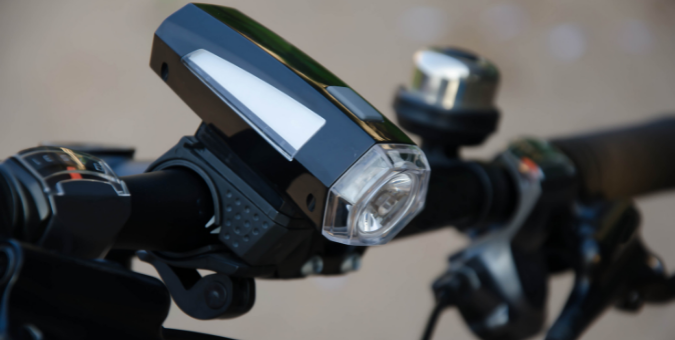
With Winter approaching and daylight hours getting shorter, visibility on a bike becomes of paramount importance. It is worthwhile remembering what the present law requires of cyclists to achieve better visibility both for their and other road users’ protection when riding in the dark.
Lighting up – the legal requirements
Road Vehicles Lighting Regulations 1989 (RVLR regs)
Under the RVLR regs it is illegal to cycle on a public road between sunset and sunrise without lights.
The RVLR regs state that when riding at night a cycle must be fitted with a white front and red rear light – both of which must be lit. The cycle must also be fitted with a red rear reflector (and amber pedal reflectors if the cycle is manufactured after 1 October 1985).
In 2005 the regulations were amended to allow the use of flashing lights provided they flashed at a certain frequency.
More guidance can be found in the Highway Code.
What does the Highway Code say about cycling without lights?
The Highway Code is a comprehensive guide to the rules of the road. Some of the rules are backed up by law (such as the RVLR regs) and are mandatory whereas others are advisory or recommended.
In addition to the requirements of RVLR regs the Code states that whilst flashing lights are permitted ‘it is recommended that cyclists who are riding in areas without street lighting use a steady front lamp’.
As for clothing the Code states that cyclists should wear ‘light-coloured or fluorescent clothing to help other road users to see them in daylight and poor light’ and ‘reflective clothing and/or accessories (belt, arm or ankle bands) when cycling in the dark’.
The Code also states that white front reflectors and spoke reflectors will help cyclists to be seen.
Is it illegal to cycle at night without lights?
To cycle without lights is committing a criminal offence. Cyclists can be stopped by police and be issued with a Fixed Penalty Notice (On-the-Spot Fine) of £50 though in practice it is not routinely enforced.
A breach of the Highway Code is often a factor when investigating liability in a civil claim for compensation. The Code provides guidance by which to assess the actions of cyclists involved in an accident.
Can an unlit cyclist involved in an accident still make a claim?
In short – yes.
The law recognises cyclists as ‘vulnerable road users’. This is because they are relatively unprotected as compared to other motorised vehicles and can suffer far more serious consequences in an accident. As a result the law seeks to protect cyclists by imposing a heavier responsibility or duty on the driver to take care.
However, a Court may find that the absence of lights on a cycle at the material time was a contributory factor in the accident and that the cyclist should share some of the responsibility. This is called ‘contributory negligence’. Under the Law Reform (Contributory Negligence) Act 1945 the Court can apportion liability between an injured Claimant and Defendant, reducing the level of compensatory damages awarded to such extent as the Court thinks is just and equitable having regard to the circumstances. Where a cyclist is found to be partly at fault apportionment of liability is usually undertaken in the form of a percentage. For example, a 75:25 liability split in favour of a cyclist where the cyclist was found to be 25% to blame.
Whether a cyclist is found to be at fault in an accident for riding without lights will depend on all the circumstances of the accident and is just one factor for the Court to consider. Riding without lights in a road where there is good streetlighting will be of less significance as compared to a country lane where there is none.


















